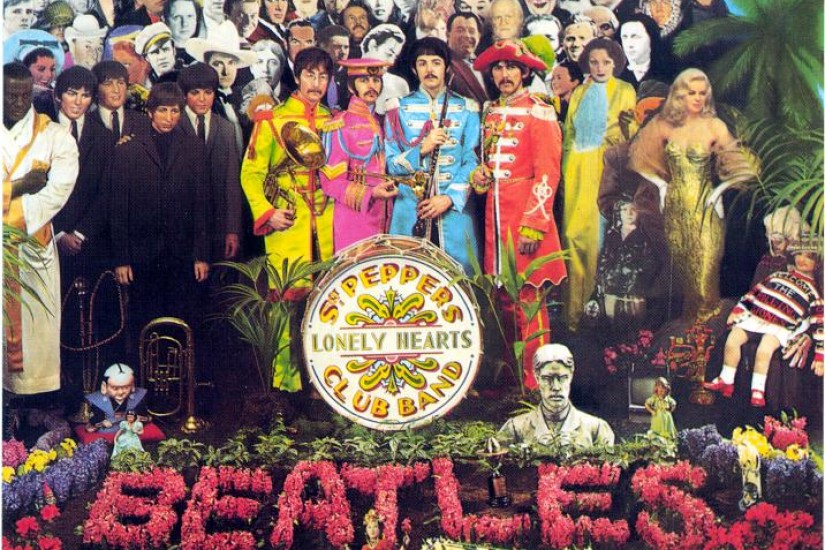The Beatles’ Sgt. Pepper’s Lonely Hearts Club Band turns 50 years old this week, and to mark the occasion, Apple Records has trotted out a deluxe reissue set, the crown jewel of which is a new stereo remix of the album by Giles Martin, son of the late Sir George Martin. The younger Martin’s mix is a revelation: For Beatles obsessives and audiophiles, it accomplishes the feat of finally delivering a stereo mix that feels both sonically and spiritually true to the original mono mix. For casual Beatles fans unfamiliar with the album’s mono mix, which has been largely unavailable during the compact disc and post–compact disc eras, the experience may well be akin to hearing the album anew, with fresh ears and a revived appreciation for what all the hype was about.
Upon its release in 1967, Sgt. Pepper’s Lonely Hearts Club Band provoked modern pop’s greatest moment of rapture, in a number of senses. The golden anniversary will surely provoke a flurry of commentary on how Sgt. Pepper was the album that changed music, a claim that is most certainly true. Just as importantly, though, Sgt. Pepper’s Lonely Hearts Club Band was the album that made it possible and intelligible for people to say that a rock ’n’ roll album had changed music, a claim that would of course be made by many other people many other times about many other albums, albeit rarely as accurately as back in May of 1967. This had to do with at least two specific convergences, and both had only partly to do with the Beatles. The first was an evolving understanding of the potential of the LP as a pop medium, and the second was an evolving understanding of the type of language that could be used to talk about pop music.
Sgt. Pepper certainly wasn’t the first great rock ’n’ roll album, nor was it the first (or fifth, or sixth) great Beatles album. But no previous work in the genre had made the album format so central to its identity.
